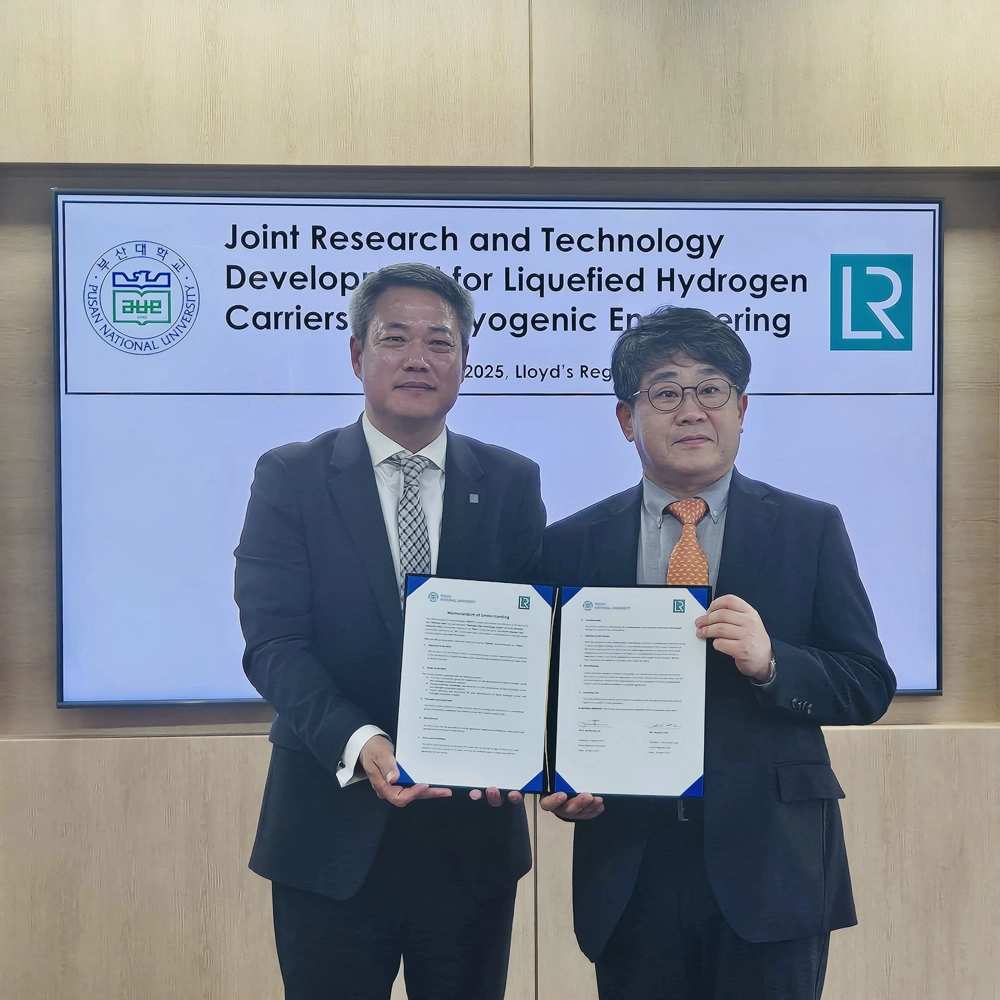Lloyd’s Register (LR) has signed an agreement with the Hydrogen Ship Technology Center at Pusan National University (PNU) in Korea, forming an international partnership aimed at advancing liquefied hydrogen carrier technology and cryogenic engineering.
 Sung-Gu Park, President – North East Asia, LR (left) and Dr Jae-Myung Lee, Director of the Hydrogen Ship Technology Center
Sung-Gu Park, President – North East Asia, LR (left) and Dr Jae-Myung Lee, Director of the Hydrogen Ship Technology Center
The Memorandum of Understanding (MoU), signed on 16 April at LR’s Busan Office, establishes a strategic collaboration focused on developing liquefied hydrogen as a clean and scalable energy source.
Through this new partnership, LR and PNU will collaborate across a wide range of activities, including joint research and technology development, the exchange of technical expertise, international academic cooperation, and shared policy development. The agreement represents a significant step forward in accelerating the commercialisation of liquefied hydrogen carriers and ensuring that they are designed, built and operated to the highest international safety and performance standards.
PNU, home to Korea’s first university-based institute specialising in eco-friendly ships, is helping to address the challenge. As the lead organisation behind the ‘Hydro Ocean K’ project, the world’s largest liquefied hydrogen carrier currently in development, the university is contributing to the future of zero-emission maritime transport.
Sung-Gu Park, President – North East Asia, Lloyd's Register, said: “We have taken an important first step towards the development of liquefied hydrogen carriers and cryogenic engineering technology. This agreement will serve as a significant turning point, allowing us to advance in the key areas of the future hydrogen economy through differentiated international exchange activities based on world-class cryogenic technology.”
Dr Jae-Myung Lee, Director of the Hydrogen Ship Technology Center, said: “The collaboration between our university and Lloyd's Register is a differentiated international exchange activity based on world-class ultra-low temperature technology. It will be an important turning point for further advancement in the utilisation of liquid hydrogen, a key field in the future hydrogen economy.
“We will make joint efforts to create synergies in the development of ultra-low temperature research, an unexplored field for human society.”
For more information, please visit EICDataStream.